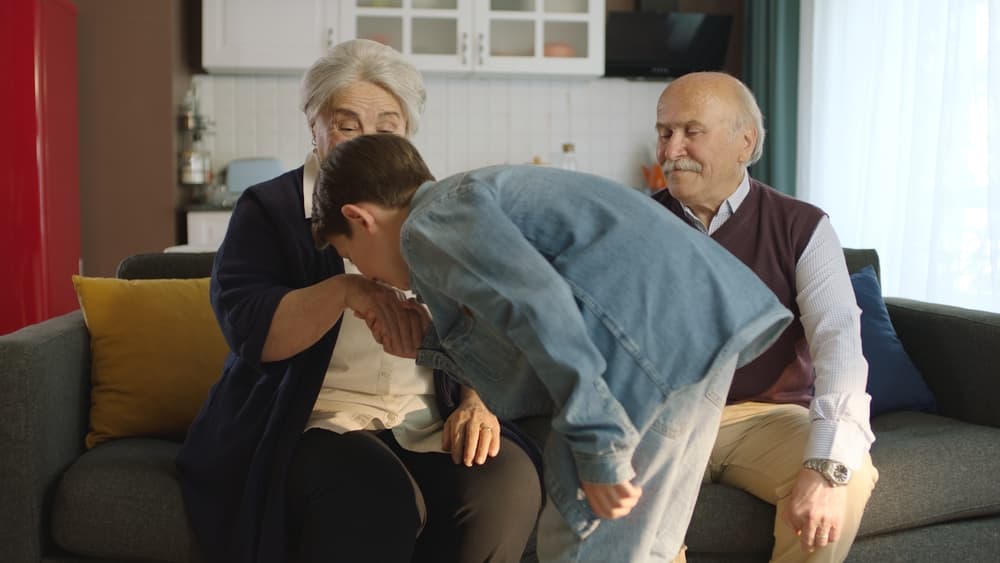Can I Get Custody Even If the Divorce Was My Fault?

Divorce often raises difficult questions about child custody. Parents may wonder if being at fault for the end of the marriage affects their chances of securing custody.
Fault in a divorce does not always mean the same thing in custody proceedings, so it’s important to understand how the two are connected. Courts prioritize children’s needs, focusing on what arrangement will serve their best interests rather than assigning blame to a parent.
If you’re asking, “Can I get custody even if the divorce was my fault?” then this guide will clarify custody proceedings and what you can expect if your situation feels complicated. Consult a experienced Phoenix child custody lawyer for legal help.
Fault in Divorce vs. Custody
Fault in a divorce can arise from issues like infidelity, abandonment, or other personal behavior. While these actions can influence the divorce process, they do not automatically determine custody outcomes.
Custody decisions focus almost entirely on the child’s well-being. Courts assess whether each parent can provide a stable and safe environment for the child, rather than focusing on who caused the breakdown of the marriage.
For example, infidelity might have led to divorce, but it doesn’t make someone a poor parent. The court wants to understand whether a parent has the qualities needed to care for their child responsibly.
The Custody Decision-Making Process

Child custody cases are evaluated based on various factors to assess what arrangement best serves the child. Judges scrutinize each situation, basing their decisions on evidence rather than emotions.
Some of the factors courts consider include:
- Stability of each parent’s home environment
- The child’s relationship with each parent
- Each parent’s ability to meet the child’s emotional, physical, and educational needs
- Any history of abuse, neglect, or substance abuse
- The child’s wishes (when they are old enough to express them)
The court typically avoids punishing a parent for the divorce unless their behavior shows they cannot provide a safe or stable home. For instance, if a parent’s actions during the marriage demonstrate neglect or frequent absence, this may raise concerns in a custody proceeding.
Fault and Parental Fitness
Parental fitness is often more important than who “caused” the divorce. Courts want to see that parents are ready to take on the responsibilities of caring for their children. When evaluating parental fitness, judges are more interested in factors like:
- Parenting skills, including the ability to discipline appropriately, care for daily needs, and show affection
- A consistent work schedule that allows time for caregiving
- Evidence that the parent encourages a relationship between the child and the other parent
- A peaceful home environment that minimizes stress for the child
Parental fitness is about the present and future, not the past. Even if mistakes were made during the marriage, proving that you can provide for your child’s needs now matters most.
Joint vs. Sole Physical Custody
Custody arrangements come in many forms. Joint custody requires both parents to share responsibilities and provide consistent care. Sole custody, on the other hand, means that one parent takes on the primary caregiving duties while the other may have visitation rights.
The behavior that led to the divorce could become a factor if it interferes with a parent’s ability to handle joint custody. For instance, if one parent’s behavior has caused significant trust issues or difficulty communicating, the court may favor sole custody for the other parent.
Proving Yourself as a Capable Parent

If you worry the divorce will work against you in a custody case, demonstrate that you are a capable and reliable parent. Start by creating an environment that supports your child’s needs. Reliable actions, thoughtful care, and genuine effort will show the court that your focus is on your child.
Some steps that can help include:
- Maintaining consistent involvement
Show that you are present in your child’s life through regular school involvement, participation in extracurricular activities, and shared routines. - Creating a structured home environment
Provide a stable living space, healthy meals, and a clear daily routine that encourages a sense of safety and predictability. - Building communication skills
Work on communicating calmly and clearly with the other parent if co-parenting is required. Prioritizing your child’s needs above personal disagreements is critical. - Demonstrating dependability
Always show up on time for visitation, appointments, or school events. Prove that your child can count on you. - Avoiding risky or harmful behaviors
Actions like substance abuse, reckless spending, or creating a chaotic environment at home can damage your custody case. Show a clean record moving forward.
Addressing Behavior That Led to Divorce
While the court may not directly penalize a parent for causing the divorce, certain behaviors can overlap into custody concerns.
For example:
- Infidelity may not matter unless it caused long-term neglect in caregiving.
- Substance abuse during the marriage may be a concern if it continues afterward.
- Anger issues or emotional outbursts may indicate difficulty handling parental responsibilities.
Addressing these issues shows the court that you’ve taken steps toward self-improvement. Examples include attending therapy or support groups, completing parenting classes, or fostering stable relationships and environments. Courts appreciate parents who demonstrate accountability and growth.
What the Court Wants to See
Judges favor parents who show that their focus is on the child and their future well-being. Mutual respect between parents during custody proceedings can leave a positive impression. When a parent conveys an attitude of maturity, stability, and understanding, it strengthens their case.
For example, a court may favor a parent who encourages shared time with the other parent, particularly if there are no serious concerns about safety. Intentional actions, like keeping the child’s routines unchanged during transitions, help show reliability and care.
Common Misconceptions About Fault and Custody
Many parents worry that being honest about past mistakes automatically means losing custody. Being honest without being defensive reassures the court of your integrity. Providing evidence of positive action and commitment to the child’s well-being proves that you are moving forward.
Another misconception is that courts favor one parent over the other based on outdated stereotypes. Courts today aim for fairness, choosing custody arrangements that minimize disruption for the child.
Strategies for Building a Strong Parenting Case
Preparing for custody hearings is an opportunity to present the best version of yourself as a parent.
To strengthen your case:
- Collect evidence of your active participation in your child’s life, such as schedules and a written parenting plan.
- Show proof of a stable and safe living environment, including details of routines, recreational activities, and parenting resources.
- Avoid divisive conversations that focus on past relationship problems. Instead, highlight how you focus on the child’s best interests moving forward.
Personal accountability and a proactive attitude send a strong message to the court that you are serious about your parenting responsibilities.
How Fault in Divorce Affects Grandparent Visitation Rights

Divorce can strain relationships beyond the couple involved. Grandparents, who often play a significant part in a child’s life, may suddenly find their access to grandchildren at risk.
When fault is assigned in a divorce, it may complicate the issue of grandparent visitation rights. Courts focus on the child’s well-being, but fault in a divorce can sometimes influence decisions about extended family involvement.
Grandparent Visitation Rights
Grandparents do not automatically receive visitation rights. These rights may be granted if the court determines that spending time with grandparents benefits the child.
Judges consider factors like the length and quality of the grandparent-grandchild relationship and the grandparent’s role in the child’s life before the divorce.
Visitation rights are often requested during or after a divorce if one parent restricts access. This is where fault in the divorce might come into play. The reasons behind the divorce and the family dynamics can influence how each parent views the involvement of grandparents.
How Fault May Complicate Grandparent Visitation
When a divorce involves accusations of fault, such as infidelity, substance abuse, or abandonment, it can cloud decisions about grandparent visitation.
For example, a parent found at fault for the divorce might struggle with maintaining their own relationship with the child. That parent’s reduced access could unintentionally affect the grandparents on their side of the family.
If the parent who retains primary custody disputes grandparent visitation, they might cite concerns related to the grandparents’ actions or their connection to the other parent’s fault in the marriage.
For example, if a grandparent’s support of one parent’s behavior during the marriage contributed to marital problems, the custodial parent might argue that the grandparent’s presence adds instability to the child’s life.
Balancing Fault with the Child’s Interests
Courts prioritize children’s needs, even when fault-based issues exist in the background. A grandparent’s petition for visitation is considered separate from the parents’ actions during the marriage.
The court will focus on whether the grandparent’s presence benefits the child and whether granting visitation protects the child’s emotional stability. Fault can creep into the equation if it directly affects the grandparents.
For instance, if a grandparent’s behavior reflects neglect, hostility, or estrangement patterns, this could harm their visitation case.
On the other hand, a grandparent who demonstrates a stable and consistent relationship with the child can make a stronger case despite the fault in the parents’ divorce.
Grandparents’ Strategies for Strengthening Visitation Claims
Grandparents who want to request visitation after a fault-based divorce should focus on establishing a clear pattern of value in the child’s life.
Building a case for visitation involves several important steps:
- Documenting the relationship history
Written evidence, such as photos, messages, or proof of shared activities, shows the strength and involvement of the grandparent in the child’s life. - Avoiding conflicts with parents
Maintaining a positive relationship with both parents, where possible, creates a more stable environment for requesting visitation rights. - Presenting a neutral stance on the divorce
Showing that the grandparent’s involvement focuses solely on the child’s best interests strengthens claims. Courts appreciate when grandparents stay above conflicts between the parents. - Adhering to court orders
Following rules, respecting boundaries, and cooperating with existing custody orders demonstrate responsibility and respect for the child’s existing routines.
When Relationships Are Strained

Parents may object to grandparent visitation due to lingering resentment or distrust tied to the fault in the divorce. While frustrating, these objections underline the need for grandparents to demonstrate their commitment to the child’s well-being.
Seeking mediation or legal intervention can help resolve these conflicts while keeping the focus on the shared goal of providing a positive experience for the child.
Courts generally do not block visitation unless there is evidence that seeing the grandparent harms the child. This means grandparents with a strong relationship history stand a solid chance of maintaining contact, even during difficult post-divorce conflicts.
Grandparents should remember that courts are more likely to grant visitation when the focus remains on the needs of the child rather than lingering disputes from the parents’ failed marriage. Their ability to present a stable, loving environment will always outweigh the complications fault may bring.
Cosmas Onya is Here to Help
We understand that custody matters can feel uncertain and stressful, especially when past decisions are questioned. If you have concerns about legal custody or court proceedings related to your divorce, we can help guide you through the process.
Contact the family law attorney at Law Office of Cosmas Onyia at (602) 265-5200 for personalized advice on securing the best arrangement for your family.

